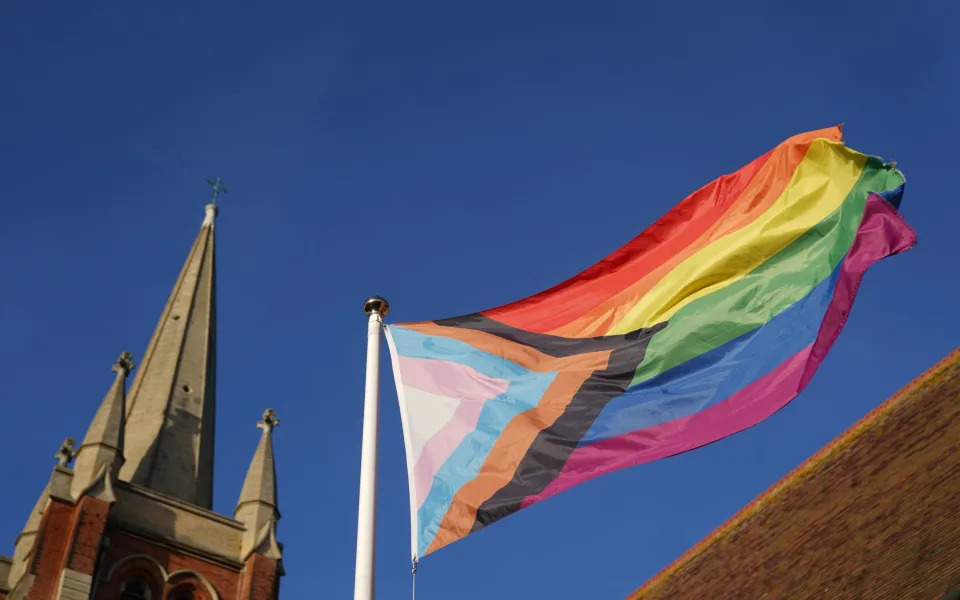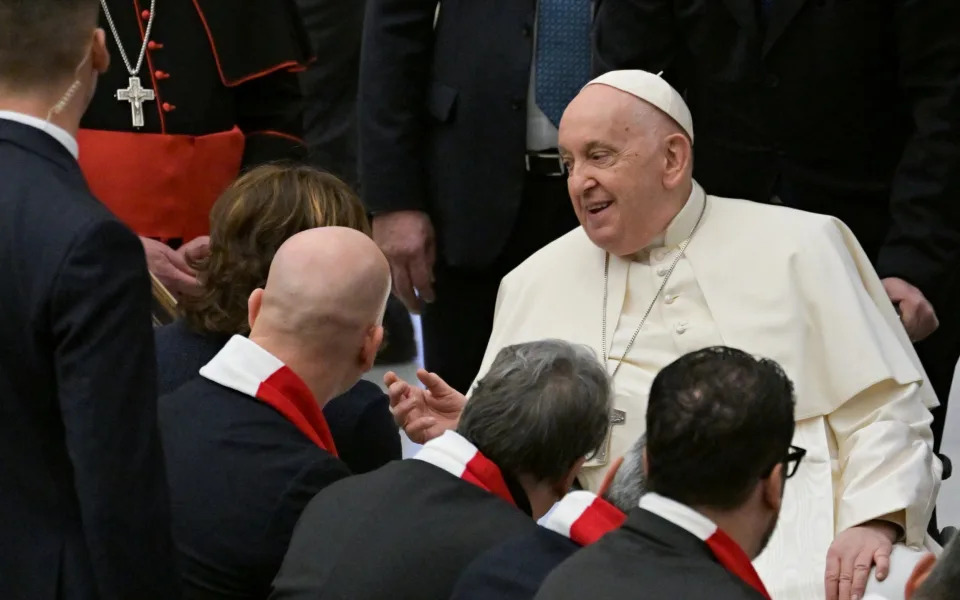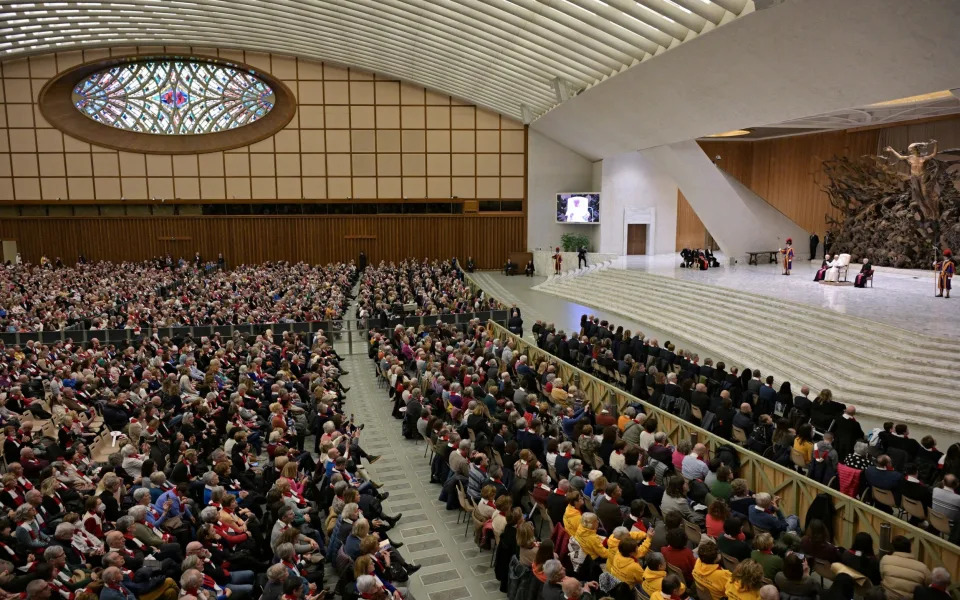1 SECOND MORE AND ITS HERESY
Nick Squires
Fri, 5 January 2024

The blessings would ask 'the Lord for peace, health and other good things' for the couple - JOE GIDDENS/PA
The Vatican has tried to calm a backlash over its decision to allow priests to bless gay couples – specifying that such gestures should last no more than 15 seconds and do not legitimise homosexual relationships.
Last month, the Holy See released a declaration in which it allowed priests to bless same-sex couples under certain circumstances, as part of the more liberal stance towards gay Catholics which has been adopted by Pope Francis since his election in 2013.
But the announcement prompted anger in many parts of the Catholic world, with particularly trenchant opposition coming from countries in Africa, Asia and Eastern Europe.
Some conservative bishops feared that the declaration represented a significant softening of the Catholic Church’s positions on gay marriage and homosexuality, in which homosexuality is seen as a disorder and homosexual acts are regarded as a sin.

The blessings would ask 'the Lord for peace, health and other good things' for the couple - JOE GIDDENS/PA
The Vatican has tried to calm a backlash over its decision to allow priests to bless gay couples – specifying that such gestures should last no more than 15 seconds and do not legitimise homosexual relationships.
Last month, the Holy See released a declaration in which it allowed priests to bless same-sex couples under certain circumstances, as part of the more liberal stance towards gay Catholics which has been adopted by Pope Francis since his election in 2013.
But the announcement prompted anger in many parts of the Catholic world, with particularly trenchant opposition coming from countries in Africa, Asia and Eastern Europe.
Some conservative bishops feared that the declaration represented a significant softening of the Catholic Church’s positions on gay marriage and homosexuality, in which homosexuality is seen as a disorder and homosexual acts are regarded as a sin.

A more liberal stance to gay Catholics has been adopted by Pope Francis - Joe Giddens/PA
In an apparent attempt to appease conservative critics, the Vatican has now sought to clarify its original declaration, insisting that it is “clear and definitive about marriage and sexuality”.
The blessing of a gay couple should be a simple procedure lasting just a few seconds and should in no way be confused with the marriage ceremony for heterosexual couples, the Vatican said.
“To be clearly distinguished from liturgical or ritualised blessings, ‘pastoral blessings’ must above all be very short. These are blessings lasting a few seconds…” the Vatican’s doctrinal office said in a five-page statement. “We are talking about something that lasts about 10 or 15 seconds.”
The blessings would “simply ask the Lord for peace, health and other good things for the two people who request it”.
It insisted that allowing priests to bless gay couples was not “heretical”, nor did it contravene the traditions of the Catholic Church.
The Dicastery for the Doctrine of the Faith, the department responsible for overseeing Catholic dogma, admitted that in some countries, for priests to openly bless gay couples might be “imprudent”, inviting persecution, prison or even death threats for the people involved.
“If there are laws that condemn the mere act of declaring oneself as a homosexual with prison and in some cases with torture and even death, it goes without saying that a blessing would be imprudent,” the Vatican said.

To appease critics, the Holy See has sought to clarify its position on gay blessings - ANDREAS SOLARO/AFP VIA GETTY IMAGES
Priests should exercise “pastoral prudence” depending on attitudes towards homosexuality within their countries.
Gay people in Africa and elsewhere continue to face extreme prejudice and persecution. Homosexuality is prohibited in more than 30 countries on the continent. The president of Burundi recently said that gay people should be stoned.
There has been fierce opposition to the blessing of gay couples in nations such as Zambia, Nigeria and Malawi.
The Archbishop of Kinshasa in the Democratic Republic of Congo, Cardinal Fridolin Ambongo, said last month: “The ambiguity of the declaration, which lends itself to numerous interpretations and manipulations, is causing much perplexity among the faithful.”
In Uruguay, Cardinal Daniel Sturla, the archbishop of Montevideo, said the blessing of gay couples was “a controversial issue and it’s creating divisions within the Church”.
In Kazakhstan, an archbishop prohibited the new blessing, saying that it contradicts the 2,000-year-old “doctrine and practice of the Catholic Church”.
The Vatican’s clarification, issued on Thursday, came less than three weeks after the original declaration was released, highlighting the consternation it had caused in many parts of the Catholic world.
The blessing of gay couples should not be seen as “a justification of all their actions, and they are not an endorsement of the life that they lead”, the doctrinal office said.
No comments:
Post a Comment